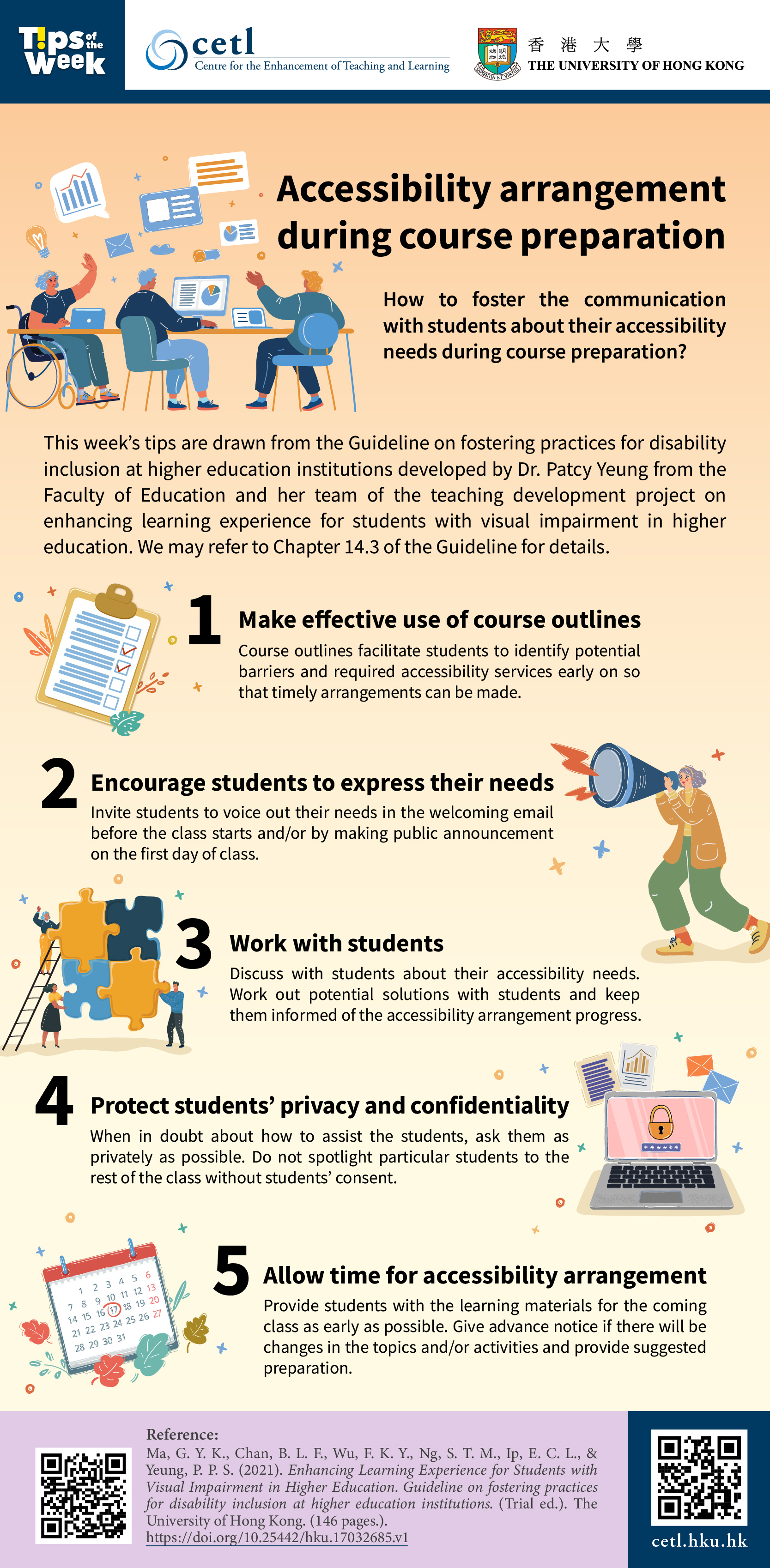
How to foster the communication with students about their accessibility needs during course preparation? This week’s tips are drawn from the Guideline on fostering practices for disability inclusion at higher education institutions developed by Dr. Patcy Yeung from the Faculty of Education and her team of the teaching development project on enhancing learning experience for students with visual impairment in higher education. We may refer to Chapter 14.3 of the Guideline for details.
- Make effective use of course outlines
Course outlines facilitate students to identify potential barriers and required accessibility services early on so that timely arrangements can be made. - Encourage students to express their needs
Invite students to voice out their needs in the welcoming email before the class starts and/or by making public announcement on the first day of class. - Work with students
Discuss with students about their accessibility needs. Work out potential solutions with students and keep them informed of the accessibility arrangement progress. - Protect students’ privacy and confidentiality
When in doubt about how to assist the students, ask them as privately as possible. Do not spotlight particular students to the rest of the class without students’ consent. - Allow time for accessibility arrangement
Provide students with the learning materials for the coming class as early as possible. Give advance notice if there will be changes in the topics and/or activities and provide suggested preparation.
Reference:
Ma, G. Y. K., Chan, B. L. F., Wu, F. K. Y., Ng, S. T. M., Ip, E. C. L., & Yeung, P. P. S. (2021). Enhancing Learning Experience for Students with Visual Impairment in Higher Education. Guideline on fostering practices for disability inclusion at higher education institutions. (Trial ed.). The University of Hong Kong. (146 pages.). https://doi.org/10.25442/hku.17032685.v1.



